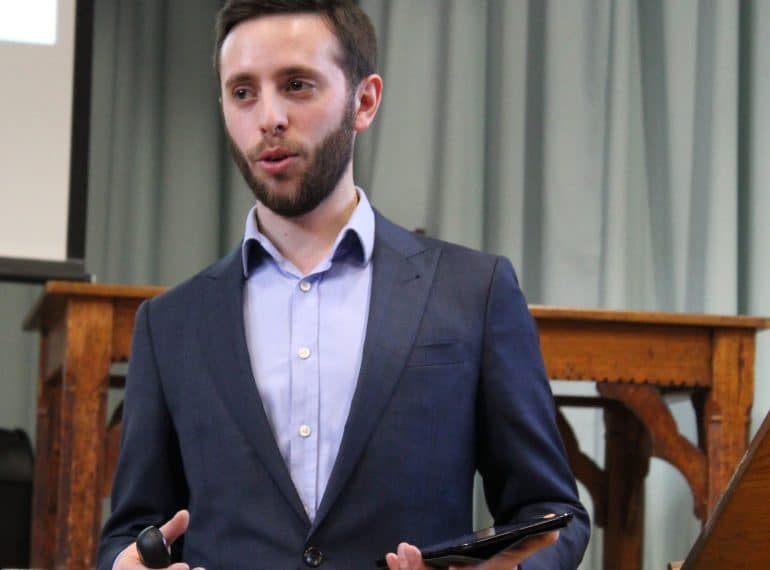
Jonathan Kruger’s plans to use technology to “reinvent” the fashion industry have been drawing attention from investors and journalists alike.
His company, The Drop, started trading only in April this year, but has already secured £250,000 in ‘pre-seed’ funding from venture capitalists Forward Partners and has also featured in the business pages of The Times. Jonathan (OE 2000–2007) expects to secure further investment of around £1.5m soon.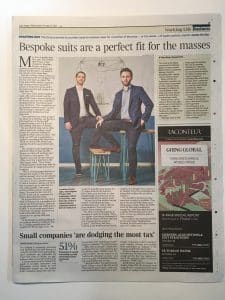
“We launched with a simple website and now we are using the investment we have already received to make it better and better, adding new features as often as twice a week. Next year, with the additional investment, we plan to expand into the US.”
Already, the website allows men to submit their measurements with a photograph and browse a range of styles before ordering made-to-measure suits from £299. They can then have them delivered anywhere in the world in two weeks. The suits are laser-cut and then hand-finished.
But, says Jonathan, that is just the start: “It’s not really a suit business. We are changing the way that clothing is made, discovered and bought and addressing each stage of the process. We looked at what is wrong with the fashion industry and we want to reinvent it, to disrupt the high street and the traditional retail structures.”
The inspiration came from a couple of years he spent working in Shanghai, where he set up a clothing company supplying big retailers. He told The Times journalist of his dismay at the wastage of natural resources and the damage done to human lives by the way the supply chain worked. Retailers would typically order a range six to 12 months in advance, with the clothing produced in very large quantities but in a limited range of styles and in limited sizing.
“We would be manufacturing dresses for $7, selling them for $11 and then they’d turn up in the shops at a few hundred quid. We saw lots of big retailers buying 20,000 of something and then deciding they don’t want it after it’s been produced. As consumers, we pay for this waste with our wallets.”
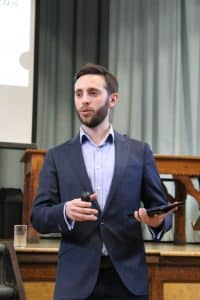 The Drop commissions a number of high-tech factories in the Far East to make its clothing. “It’s mass personalisation to replace mass production and fast fashion,” said Jonathan. “We only produce what we need, so we are building a fashion business that is not only better for the customer, but better for the world.”
The Drop commissions a number of high-tech factories in the Far East to make its clothing. “It’s mass personalisation to replace mass production and fast fashion,” said Jonathan. “We only produce what we need, so we are building a fashion business that is not only better for the customer, but better for the world.”
Jonathan, who is The Drop’s chief executive officer, met his co-founder, Stephen Stroud, one-and-a-half years ago. Stephen is a software engineer and is The Drop’s chief technology officer. “We are building a platform which is AI-led: it uses machine learning to understand what you like to wear and how you like things to fit,” says Jonathan. The workforce at The Drop is being expanded as the business grows. “We should be a team of seven in the next couple of months.”
Jonathan took a degree in Politics at Sheffield after leaving QE, graduating in 2010. During his spell in Shanghai from 2010 to 2012, he helped establish and then manage a Chinese sales team for a UK-based trading company.
In the run-up to the end of the autumn term, Jonathan came as a speaker to QE’s Young Entrepreneurs Club in the Main Hall. Headmaster Neil Enright said: “We really enjoyed his excellent presentation and eight key messages for aspiring entrepreneurs.” These were:
-
- Don’t play it safe and don’t be afraid to fail;
- Always hustle:
- Think big and go big;
- Success takes time;
- Be stubborn on vision but flexible on details;
- Don’t let vanity make you lose focus;
- When starting out, no job is beneath you;
- Be humble enough to ask for help.

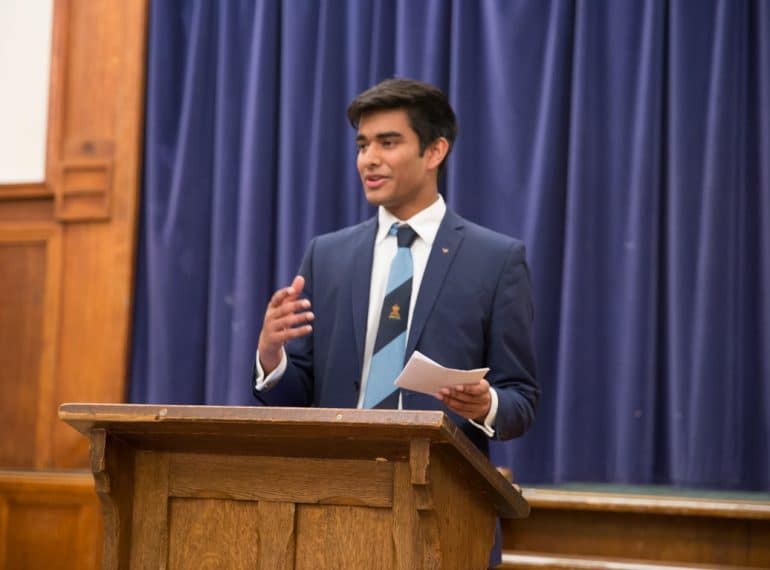
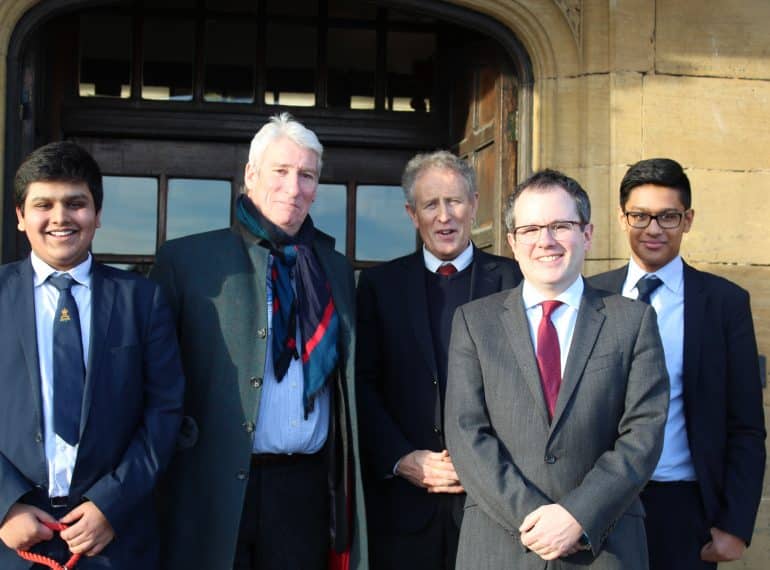
 When he came to the QE Politics Society event, the shoe was on the other foot, with boys from all year groups seizing the chance to grill the famous interviewer. However, that did not prevent some boys, including Politics Society Chairman Tej Mehta, from being ‘Paxmanned’ – robustly taken to task for the slant of their questions – albeit in very good humour.
When he came to the QE Politics Society event, the shoe was on the other foot, with boys from all year groups seizing the chance to grill the famous interviewer. However, that did not prevent some boys, including Politics Society Chairman Tej Mehta, from being ‘Paxmanned’ – robustly taken to task for the slant of their questions – albeit in very good humour. “Such visits give our boys unique opportunities to learn from national and international experts. They also foster our pupils’ skills in asking good questions, which we see as an important aspect of developing boys’ intellectual capabilities – and who better to learn from than the master questioner himself?”
“Such visits give our boys unique opportunities to learn from national and international experts. They also foster our pupils’ skills in asking good questions, which we see as an important aspect of developing boys’ intellectual capabilities – and who better to learn from than the master questioner himself?”
 English teacher Alex Ulyet said: “They held on to this right until the end and the only question was whether the Year 7 or Year 8 team would clinch the top spot, but Year 8 nudged in front by about two points.
English teacher Alex Ulyet said: “They held on to this right until the end and the only question was whether the Year 7 or Year 8 team would clinch the top spot, but Year 8 nudged in front by about two points. “Both teams seemed to really enjoy just being able to revel in their knowledge of children’s and young adult fiction. There was a sense that it left them with an even greater desire to go out and read some of the books which they heard questions about but had not yet read, which is of course the most important thing,” Mr Ulyet added.
“Both teams seemed to really enjoy just being able to revel in their knowledge of children’s and young adult fiction. There was a sense that it left them with an even greater desire to go out and read some of the books which they heard questions about but had not yet read, which is of course the most important thing,” Mr Ulyet added.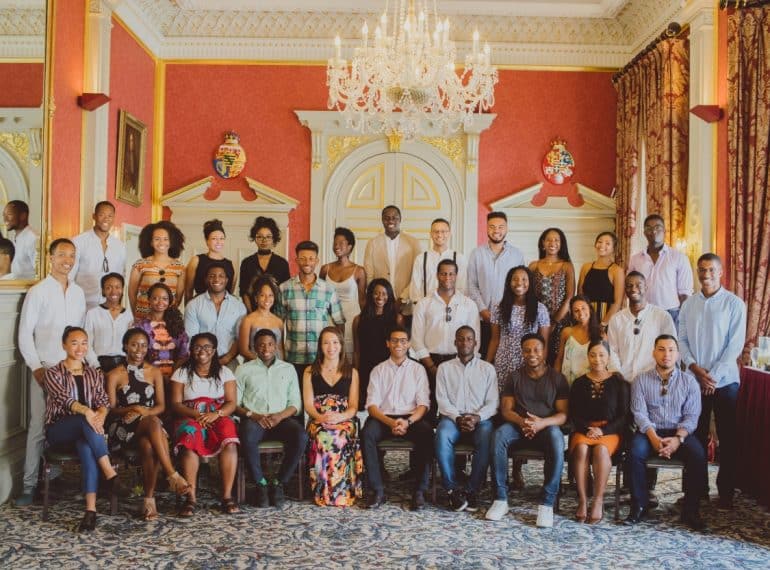
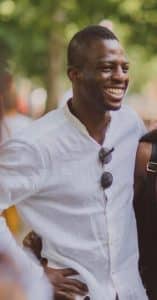
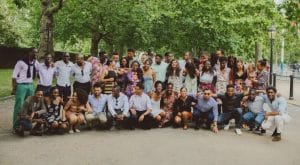 “Oxford was a fantastic educational experience and I want to ensure that prospective black students can believe this will be true for them as well,” he said.
“Oxford was a fantastic educational experience and I want to ensure that prospective black students can believe this will be true for them as well,” he said.